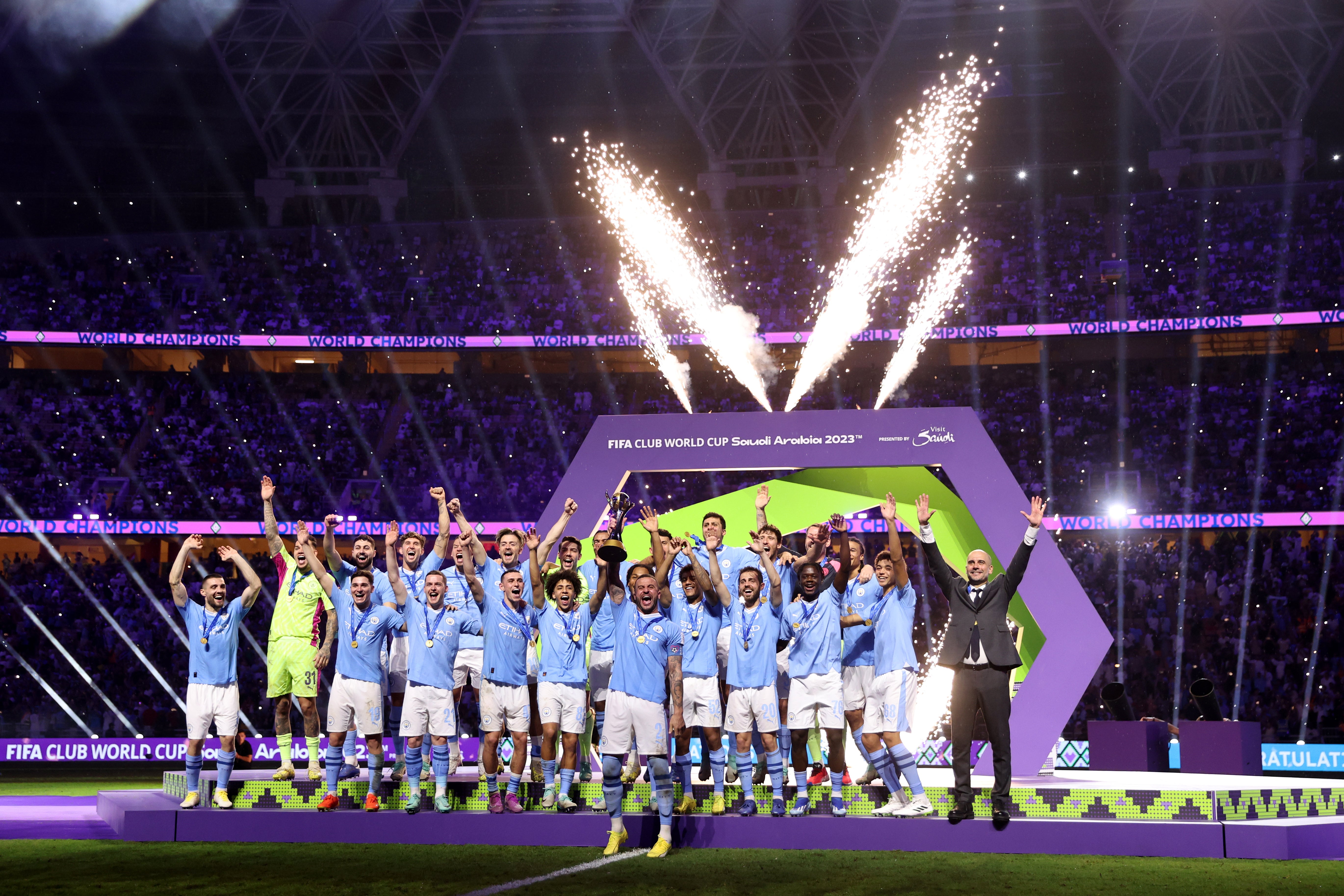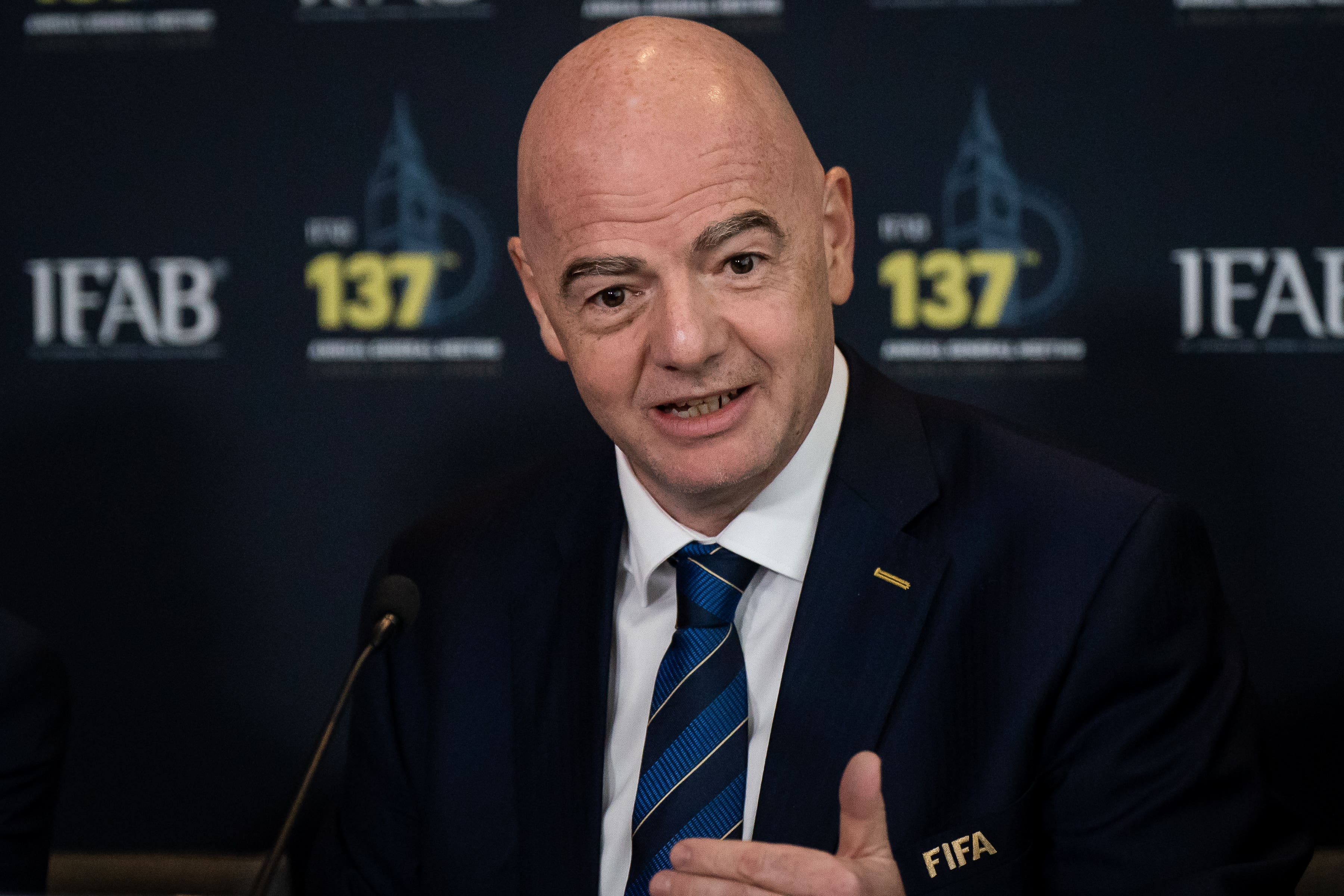The Independent's journalism is supported by our readers. When you purchase through links on our site, we may earn commission.
New Club World Cup explained: Format, teams and why it’s controversial
A vastly expanded competition is set to play havoc on the club football schedule

Your support helps us to tell the story
From reproductive rights to climate change to Big Tech, The Independent is on the ground when the story is developing. Whether it's investigating the financials of Elon Musk's pro-Trump PAC or producing our latest documentary, 'The A Word', which shines a light on the American women fighting for reproductive rights, we know how important it is to parse out the facts from the messaging.
At such a critical moment in US history, we need reporters on the ground. Your donation allows us to keep sending journalists to speak to both sides of the story.
The Independent is trusted by Americans across the entire political spectrum. And unlike many other quality news outlets, we choose not to lock Americans out of our reporting and analysis with paywalls. We believe quality journalism should be available to everyone, paid for by those who can afford it.
Your support makes all the difference.The first edition of Fifa’s new Club World Cup format will take place at the end of this season from 15 June until 13 July.
Football’s governing body has sought to ramp up interest in a competition that is currently considered little more than a footnote on the European campaign, with the Champions League winners often facing a trip across the globe against vastly undermatched opposition.
The last 11 iterations have been won by Europe’s representatives, with Brazilian club Corinthians interrupting the monopoly by beating Chelsea in 2012. Fifa is aiming to reignite interest, expanding the seven-team tournament into a controversial 32-team spectacle that will significantly impact competing clubs’ time for recovery.
Here’s everything you need to know.
What is the new format?
The most familiar way to approach the new format is actually pretty simple. Fifa is replicating the World Cup at club level, expanding to 32 teams who will play in eight groups of four before progressing to the knockout rounds.
The top two from each group will qualify for the round of 16, competing in single-match knockouts until a winner is crowned in the final. There will be no third-place play-off.
Clubs from six federations will compete, including 12 from Europe. South America will send six teams, with four each from Asia, Africa and Concacaf (North and Central America, Caribbean). Oceania will enter one side, as will the host nation, which in 2025’s case is the United States.
Which teams will play in 2025?
The majority of the teams for the 2025 edition are already decided, with two slots remaining. Criteria is based on the period between 2021 and 2024, with continental champions and those who rank highly on the confederations club ranking invited to take part.
Qualified as continental champions:
- Al Ahly (EGY) – 2020/21, 2022/23 and 2023/24 CAF Champions League
- Wydad (MAR) – 2021/22 CAF Champions League
- Al Hilal (KSA) – 2021 AFC Champions League
- Urawa Red Diamonds (JPN) – 2022 AFC Champions League
- Al Ain (UAE) - 2023/24 AFC Champions League
- Chelsea (ENG) – 2020/21 UEFA Champions League
- Real Madrid (ESP) – 2021/22 and 2023/24 UEFA Champions League
- Manchester City (ENG) – 2022/23 UEFA Champions League
- Monterrey (MEX) – 2021 Concacaf Champions Cup
- Seattle Sounders (USA) – 2022 Concacaf Champions Cup
- Club Leon (MEX) – 2023 Concacaf Champions Cup
- Pachuca (MEX) - 2024 Concacaf Champions Cup
- Palmeiras (BRA) – 2021 CONMEBOL Libertadores
- Flamengo (BRA) – 2022 CONMEBOL Libertadores
- Fluminense (BRA) – 2023 CONMEBOL Libertadores
Qualified via ranking:
- ES Tunis (TUN) - CAF ranking pathway
- Mamelodi Sundowns (RSA) - CAF ranking pathway
- Ulsan HD FC (KOR) - AFC ranking pathway
- Bayern Munich (GER) – UEFA ranking pathway
- Paris Saint-Germain (FRA) – UEFA ranking pathway
- Inter Milan (ITA) – UEFA ranking pathway
- Porto (POR) - UEFA ranking pathway
- Benfica (POR) – UEFA ranking pathway
- Borussia Dortmund (GER) - UEFA ranking pathway
- Juventus (ITA) - UEFA ranking pathway
- Atletico Madrid (ESP) - UEFA ranking pathway
- FC Salzburg (AUT) - UEFA ranking pathway
- Auckland City (NZL) – OFC ranking pathway
- River Plate (ARG) - CONMEBOL ranking pathway
- Boca Juniors (ARG) - CONMEBOL ranking pathway
Remaining spots to be decided:
- 2024 CONMEBOL Libertadores winners
- One team from the host country (USA)
Why is it controversial?
Many clubs already face difficult-to-navigate schedules, especially in Europe, where elite players may have to work through a domestic season that includes multiple national cups, the Champions League and an international tournament in the same calendar year.
While the new Club World Cup format will take place in a year that doesn’t feature an international summer tournament, it will mean some players only receive a significant rest period once every four years.

Fifpro, the body that represents professional footballers across the globe has moved to bring legal action against Fifa. The Professional Footballers’ Association (PFA) subsequently joined the legal action, with chief executive Maheta Molango speaking strongly on the importance of breaks for players.
“Everyone across football knows that the fixture calendar is broken to the point that it has now become unworkable,” said Molango.
“There are too many emerging instances across football where the rights of players, and the legal implications of decisions by governing bodies and competition organisers, are seen as something that can just be ignored.
“Players are not being listened to and they want to see action. As their union, we have a duty to intervene and to enforce their legal rights as employees. Ultimately, that time has now come.”
Premier League CEO Richard Masters also criticised Fifa for failing to consult clubs on the changes, saying players are concerned for their well-being.

“The feedback we have from players is that there is too much football being played…if you pour more liquid into the cup that’s already full, it will overflow,” said Masters, reported by The Athletic.
Fifa president Gianni Infantino appears unphased by the criticism, labelling the legal fight as a “futile debate that’s really pointless,” per The Athletic.
There have also been questioned raised about how the tournament will handle contracts due to expire during the Club World Cup. Many player contracts in Europe run to 30 June, right in the middle of the tournament, potentially causing problems for those who become free agents. Disruption from the transfer market is also likely, though Fifa has made clear that players will be unable to represent two clubs in the competition.
Join our commenting forum
Join thought-provoking conversations, follow other Independent readers and see their replies
Comments